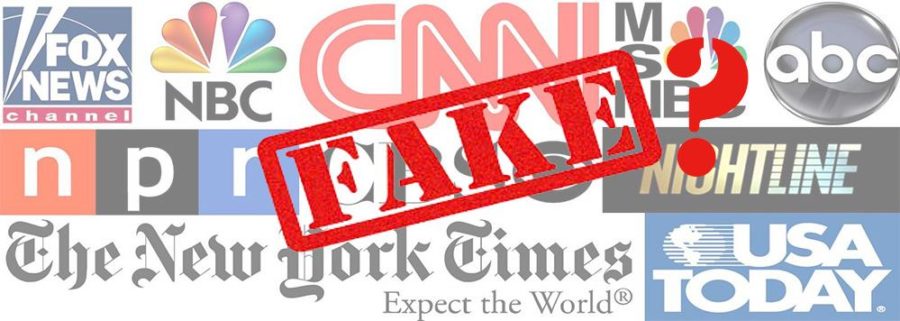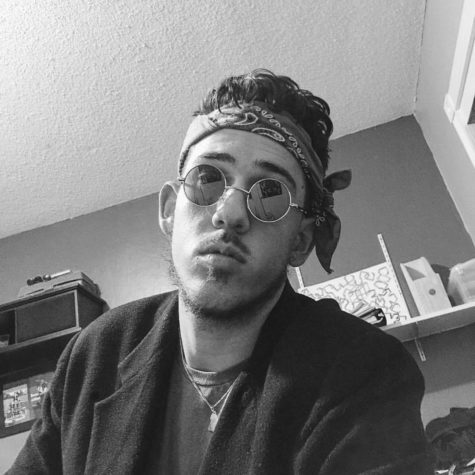Fake news, alternative facts and presidential Twitter wars. It’s an interesting time to be alive in the United States. As the truth becomes scarce, it’s hard to distinguish between real and fake media.
As our president discredits major established news, saying they produce “fake news,” there are many questions that come to mind. Why does President Donald Trump try to discredit CNN and the New York Times as fake news outlets? How are they fake news? What is fake news? If it’s fake, how is it being broadcast to the nation, and why?
It can be overwhelming. Sometimes I feel like turning off the notifications on my phone, and keeping my TV off the entire day. I’m worried I’ll just be wasting my time reading articles that might be dubbed fake news or pondering whether the latest Kellyanne Conway stunt affects my life in any way whatsoever.
But as much as I would love to disconnect from the media and not worry about the bullshit they throw at us nowadays, it would be counterintuitive to do so. Now more than ever, we need to criticize the media in every aspect. “Why is this important?” “Is this a good news source?” and “What is the journalist actually trying to say by sharing this media?” are all important questions readers need to be asking.
“You need to understand what is happening before you can distinguish the bad from the good, so disengagement is not the right thing to do,” says Santa Rosa Junior College media instructor Dr. Tony Kashani, an expert on media literacy. “I would advise students to actually engage with the mainstream media as well as the independent alternatives.”
It’s called critical media literacy, and yes it’s a thing. With so many fellow millennials getting tricked by misguiding headlines and subpar journalism, it may as well be a term from the stone age.
As Dr. Kashani explains, critical media literacy is the act of critically analyzing media outlets and its sources by poking holes in its reasoning, importance, relevance and truthfulness. Facebook is the perfect example of the type of media Kashani believes we should look at more skeptically. Virtually every millennial is on Facebook, to some extent. Think about how many of the articles that pop up have alluring headlines and tantalizing pictures. Almost all of them do! And as you click on that link, you’re redirected to an “independent” news source with a half-page story that sounds too good to be true. Well, I hate to burst your critically illiterate media bubble, but it probably is.
“Scientific tests prove tequila is good for your health!” said one headline on my feed a few months back. Yeah, I wish. But with a catchy headline like that I had to click on the article. As I read through, everything seemed to check out. It was well written, aside from a couple grammatical errors, it had substance with (supposed) scientific proof to back it up and it was from an independent news source I was familiar with.
After thinking my life had changed for the better, I did a quick Google search. Without much digging, I found articles on Harvard University’s website and other established mainstream sites that made it extremely apparent that the article I had just read was indeed fake news.
“Instead of going down a slippery slope and falling into the trap of consumerism, we can use these platforms [like Facebook] for social engagement, political revolution and so forth. So it’s a double-edged sword of sorts,” Kashani said.
Kashani believes we need to use our brains when surfing Facebook and other social media sites because a lot of it is sweet nothings. There’s nothing to keep us feeling like we are actively researching news and connecting with the rest of the world.
With a lack of critical media literacy among millennials reaching epidemic proportions, there is only one thing left to do. Let’s use our power as the largest living generation to critically scrutinize the mainstream media until they understand that we are going to start holding them accountable for what they produce. We need to actively participate in a critical look into the media until its established oligopoly changes its ways and follows a more journalistic ethical standard. Although CNN and the New York Times offer high caliber journalism, they are still part of the media establishment and need to be held accountable.
Journalism works like the fourth branch of government. Journalists have a civic duty to keep our democracy in check and hold our leaders accountable. If journalists can’t do their jobs, our democracy is at stake.
“We need to reverse the course, go back to the drawing board and find out the ways in which we can educate the masses in a way we actually cultivate intellectualism and not make it a bad thing for people to think about and be skeptical about everything,” Kashani says.
I encourage every one of my peers to be skeptical when consuming daily media. The media doesn’t stop even if we’re trying to not engage with it. Without reliable news, there is no way to tell what is actually going on in America, let alone the rest of the world.
SRJC’s Doyle Library is offering a workshop on media literacy called “Fake News: Navigating the Seas of Misinformation” on Monday April 3 from 3-4 p.m.




